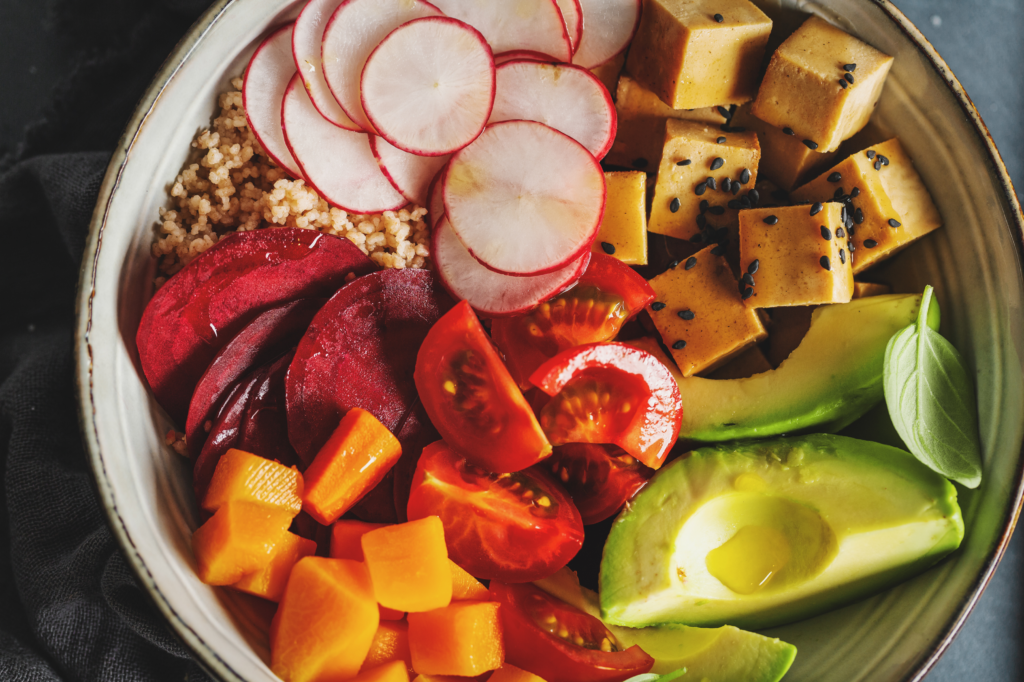Although still a minority, more people are exploring plant-based diets, including teens. If your teen has expressed interest in this, you may wonder if being a vegetarian or vegan is nutritionally sound and how to handle this change at home. In some families, a diet different than the rest of the household can be a source of conflict, but it need not be so.
Understanding the reason behind a change in diet is important. Some choose vegetarianism or veganism for health reasons (in adults, these diets are associated with lower risk of some diseases including heart disease, high blood pressure, Type 2 diabetes, and some cancers). The American Academy of Nutrition and Dietetics along with the American Academy of Pediatrics have stated that vegan and vegetarian diets can be “nutritionally adequate during infancy, childhood and adolescence”, but emphasize the need to make sure kids are getting enough nutrition to maintain good health and grow properly. Other reasons for choosing to be vegetarian or vegan may have to do with the larger carbon footprint of animal-based foods and animal cruelty concerns. If your teen is doing this to lose weight, make sure there is not an underlying eating disorder, and touch base with your provider if this is a concern.
There are different types of plant-based diets. Lacto-ovo vegetarians eat no meat but do eat dairy and eggs. Lacto-vegetarians eat no meat or eggs but do consume dairy products. Pescatarians don’t eat meat but do eat fish (and usually dairy and eggs). Vegans eat no food products that come from animals including dairy, eggs and for some, honey.

Vegetarianism and veganism are not just about what is not eaten, but also about what is eaten to be fully healthy. It is important to be mindful of certain key nutrients that may be harder for vegetarians and vegans to get enough of:
In general, those following a vegetarian or vegan diet should take a multivitamin that has B vitamins, calcium, vitamin D, zinc, and other nutrients. Look for foods that are fortified with vitamin B-12, calcium, omega-3 fatty acids, iron, and vitamin D. Discussing healthy nutrition with your teen is important regardless of their preferences, but especially if they are interested in following a vegetarian or vegan diet. And since plant-based foods are important for all of us, this could be an opportunity for the whole family to learn more about healthy eating.
more about The contributor

Dr. Elise Herman
Dr. Herman is passionate about community health outreach, school programs, and child/family health and wellness. She has more than 31 years of experience as a pediatrician in Ellensburg, Washington, the last 3 with KVH Pediatrics. In 2022 Dr. Herman mostly retired from practice and continues to contribute blog posts and remain a visible advocate for kids in the community.
